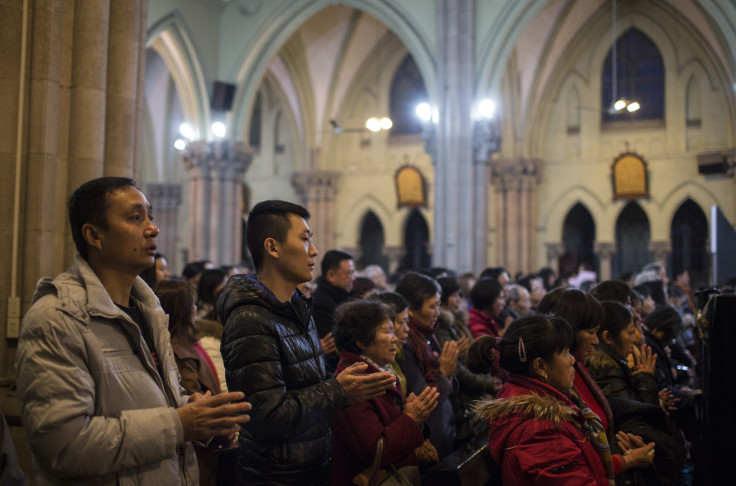Vatican Working Toward Formal Ties With China Despite Rhetorical Disagreements

In any new relationship, learning and establishing boundaries can be awkward. In China, amid a back-and-forth spat between the Vatican and the communist government, are an estimated 12 million Catholics attempting to reconcile their religion and their country.
On Wednesday, Agence France-Presse reported that during his weekly appearance in St. Peter’s Square, Pope Francis called on Chinese Catholics to attach themselves to “the rock of Peter on which the church was built.” In other words, China’s Catholics should give allegiance to the Holy See established by St. Peter, considered the first pope, instead of the government-sanctioned Chinese Patriotic Catholic Association. The statement seems likely to antagonize Beijing, which officially tolerates only government-appointed bishops and churches.
Others downplay the pontiff's comments. Lionel Jensen, an associate professor of East Asian language and culture at Notre Dame University, says such remarks are just the latest in a verbal sparring match that may sound inflammatory, but still ultimately aims to work out some type of relationship.
“The comment made by Pope Francis has to be taken in context about Xi Jinping’s official explanation about how religion will be treated in China,” said Jensen. The Chinese president earlier this week reminded churches in China to be loyalty -- above all else -- to the state.
“I don’t think this is a setback,” Jensen said. “This is some of the tit-for-tat we see with both sides trying to establish what their ground rules are gonna be.” Still, it seems that the Vatican has been putting in most of the work to build relations.
“The movement toward a rapprochement began in earnest last August when Pope Francis urged Asian area bishops, who met with him before his departure from Korea, to assist in facilitating a warmer relationship with China," said Jensen. "To his way of thinking, this overture by the bishops could create conditions more amenable to a discussion.”
These signs of good faith have only continued, at least coming from the Holy See. Jensen says Francis showed an inclination to further engage with China when he opted not to meet the Dalai Lama, the exiled Tibetan Buddhist leader, when he was in Rome. “This was really quite strange. But it makes sense to me because this is the kind of behavior that China expects out of high-level people when they are in some kind of negotiations with China.”
That said, progress in Vatican-China relations seems to move two steps forward, one step back.
As Christianity in various forms grows in popularity in China, alarm bells have sounded for the central government, which is threatened by any independent power center. The most recent crackdown involved the demolition or removal of crosses on rooftops in Zhejiang province.
As relations fluctuate on a nearly daily basis, Jensen is confident that the Vatican is committed to finding a way into China.
“What I’ve learned is that the Vatican is in fact moving very steadily and deliberately toward improving relations with China and trying to get some official talks going,” Jensen said. “That hasn't happened yet, but it's good that both the Vatican and Beijing are talking outside the perimeter of what we call normal diplomatic interchange.”
“There’s something going here. There are feelers being sent out in both directions.”
© Copyright IBTimes 2024. All rights reserved.





















